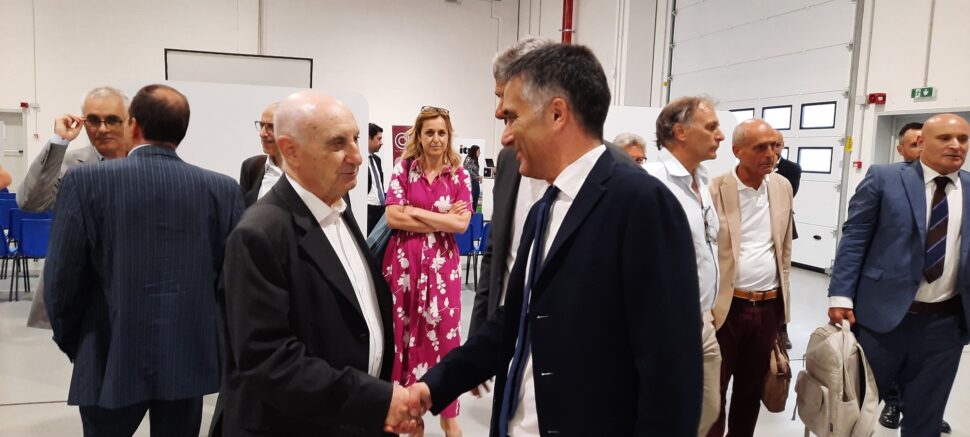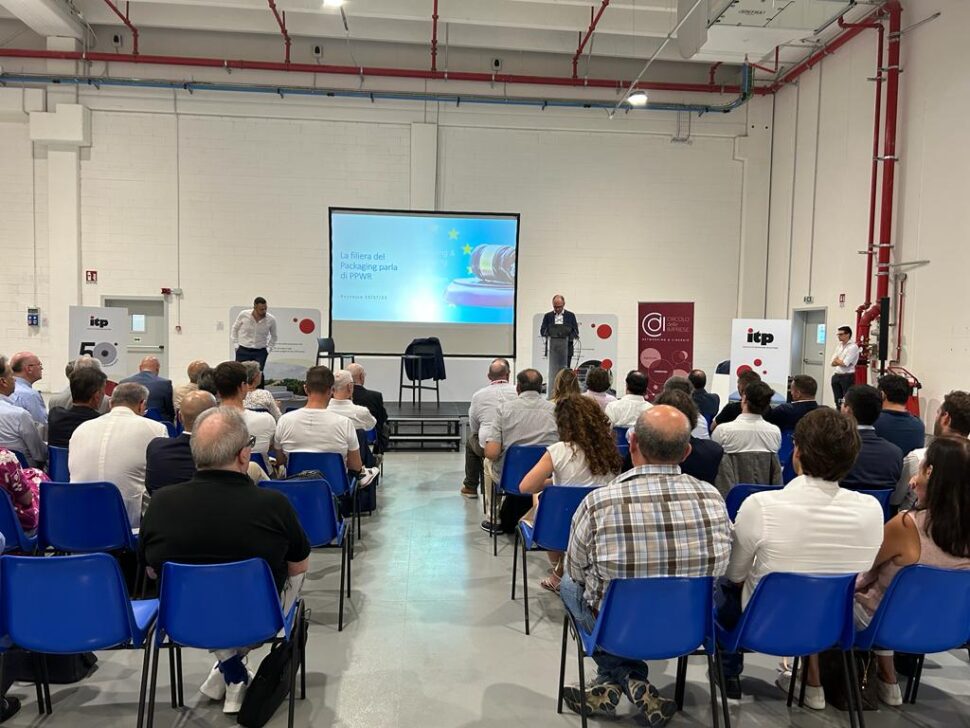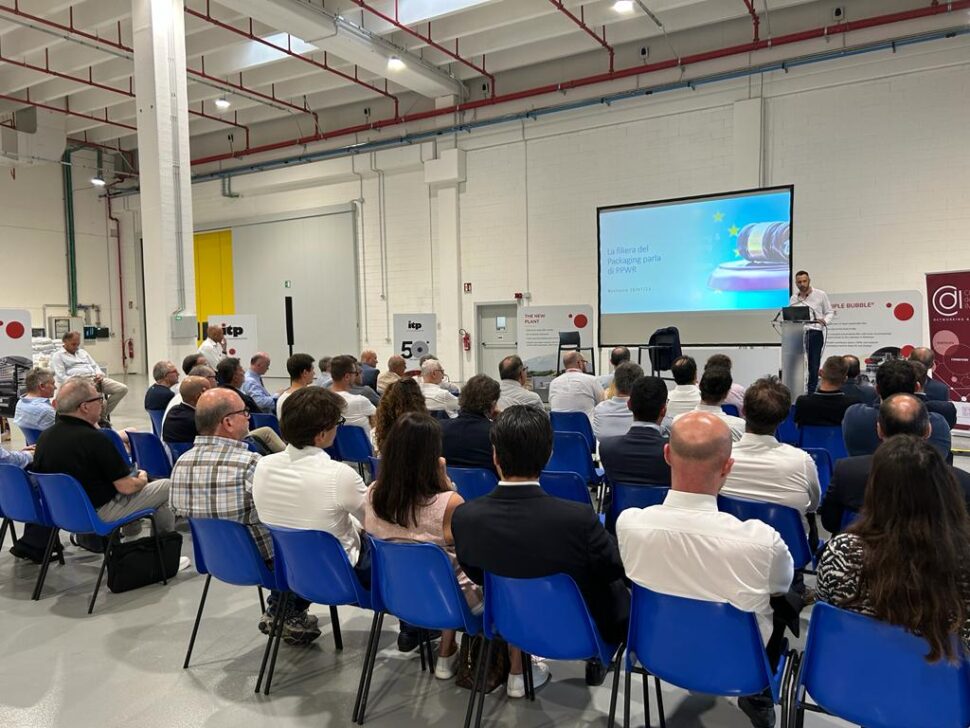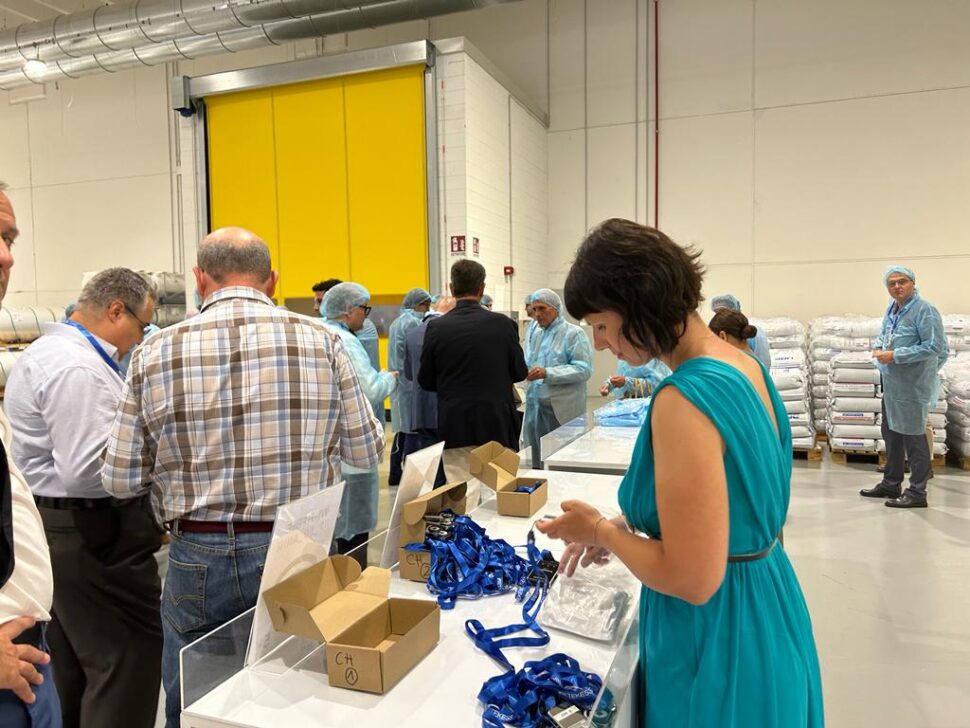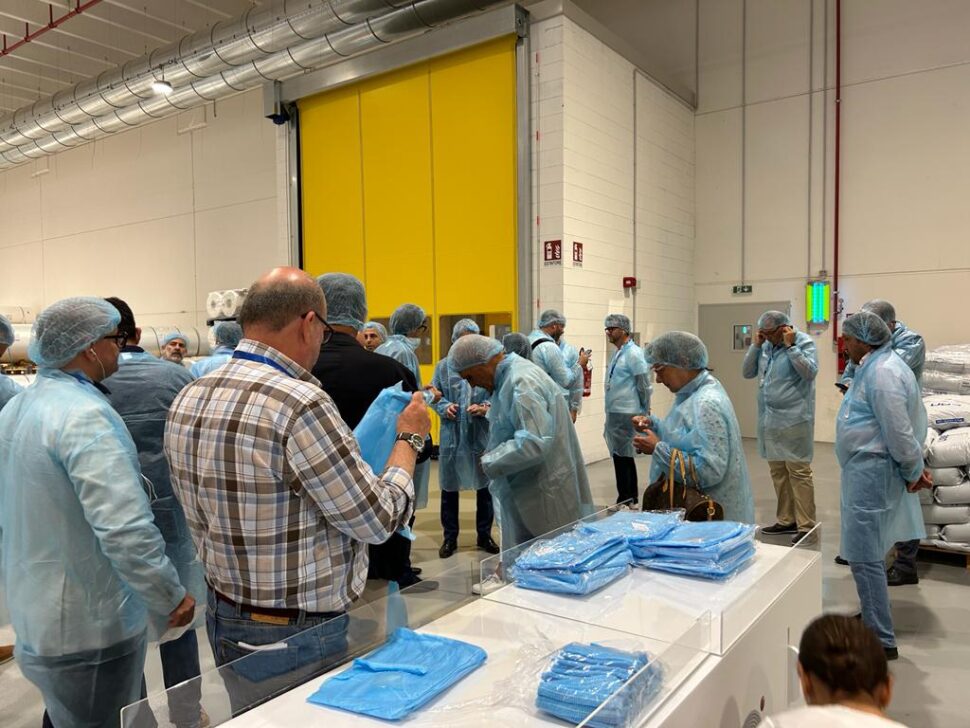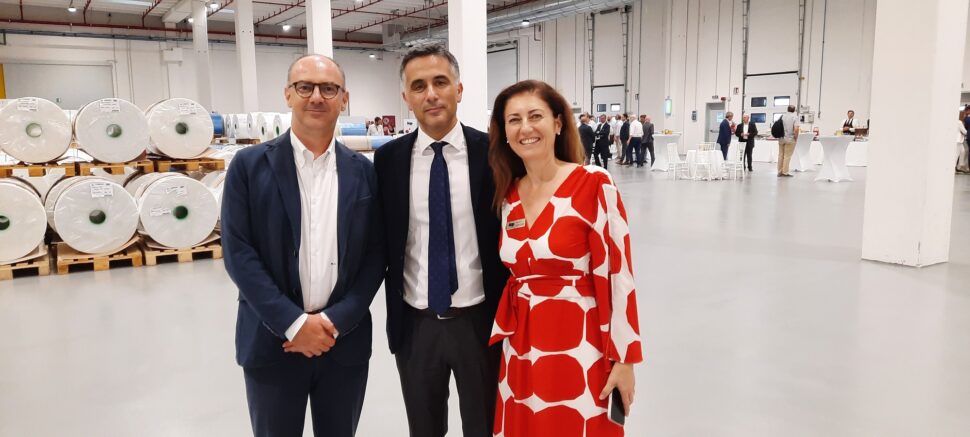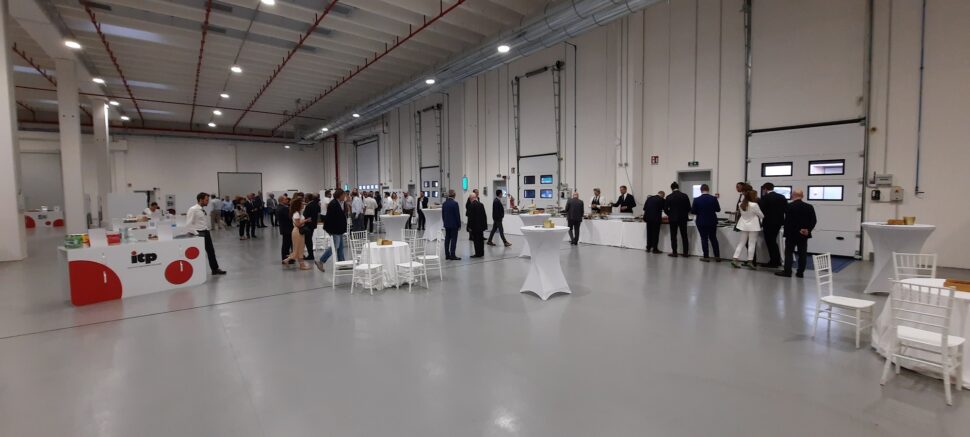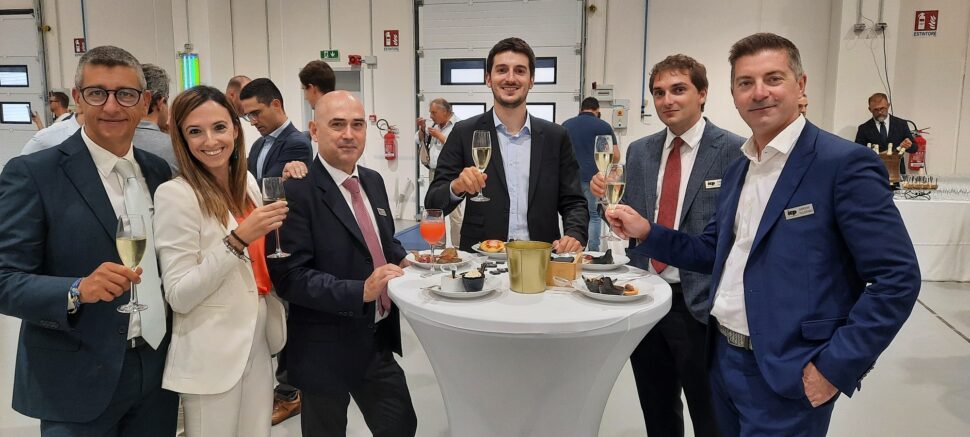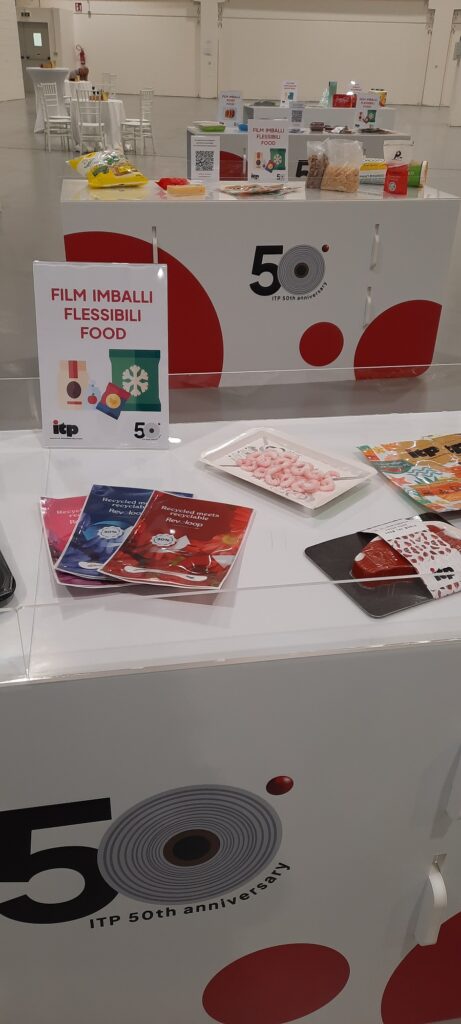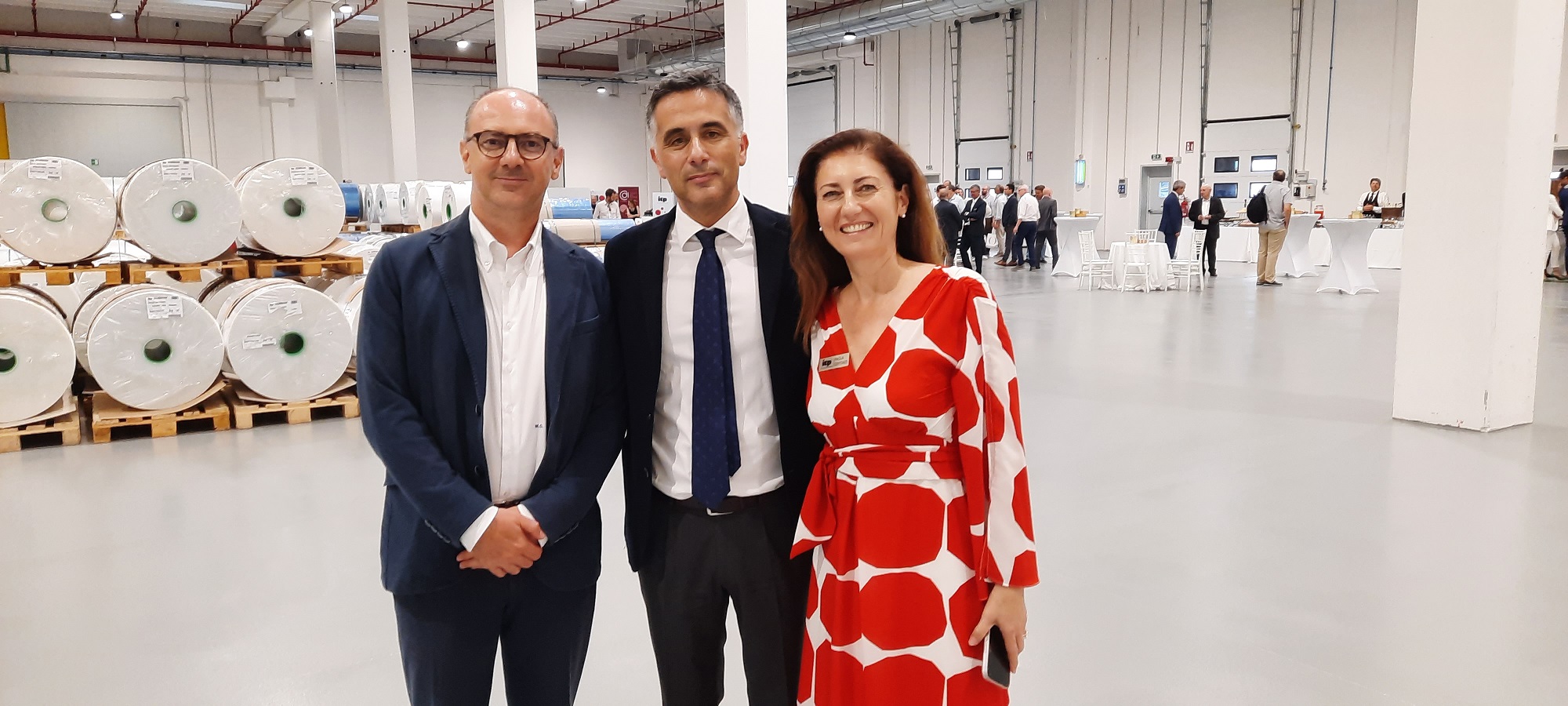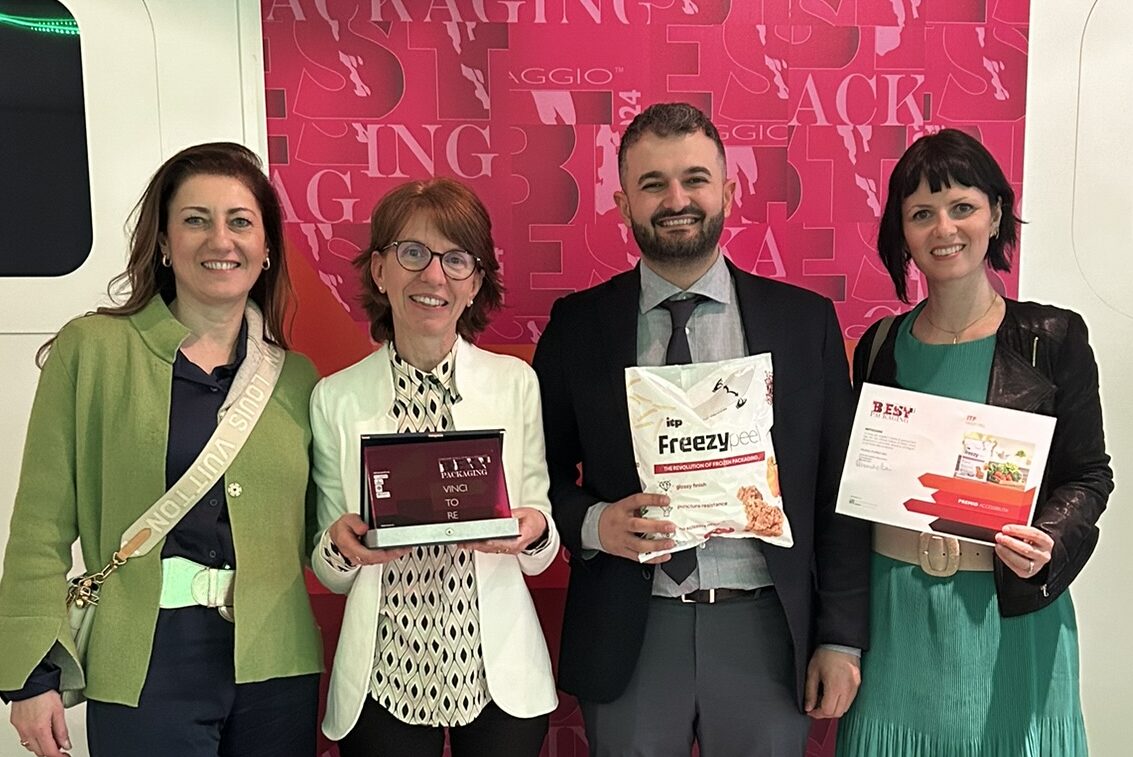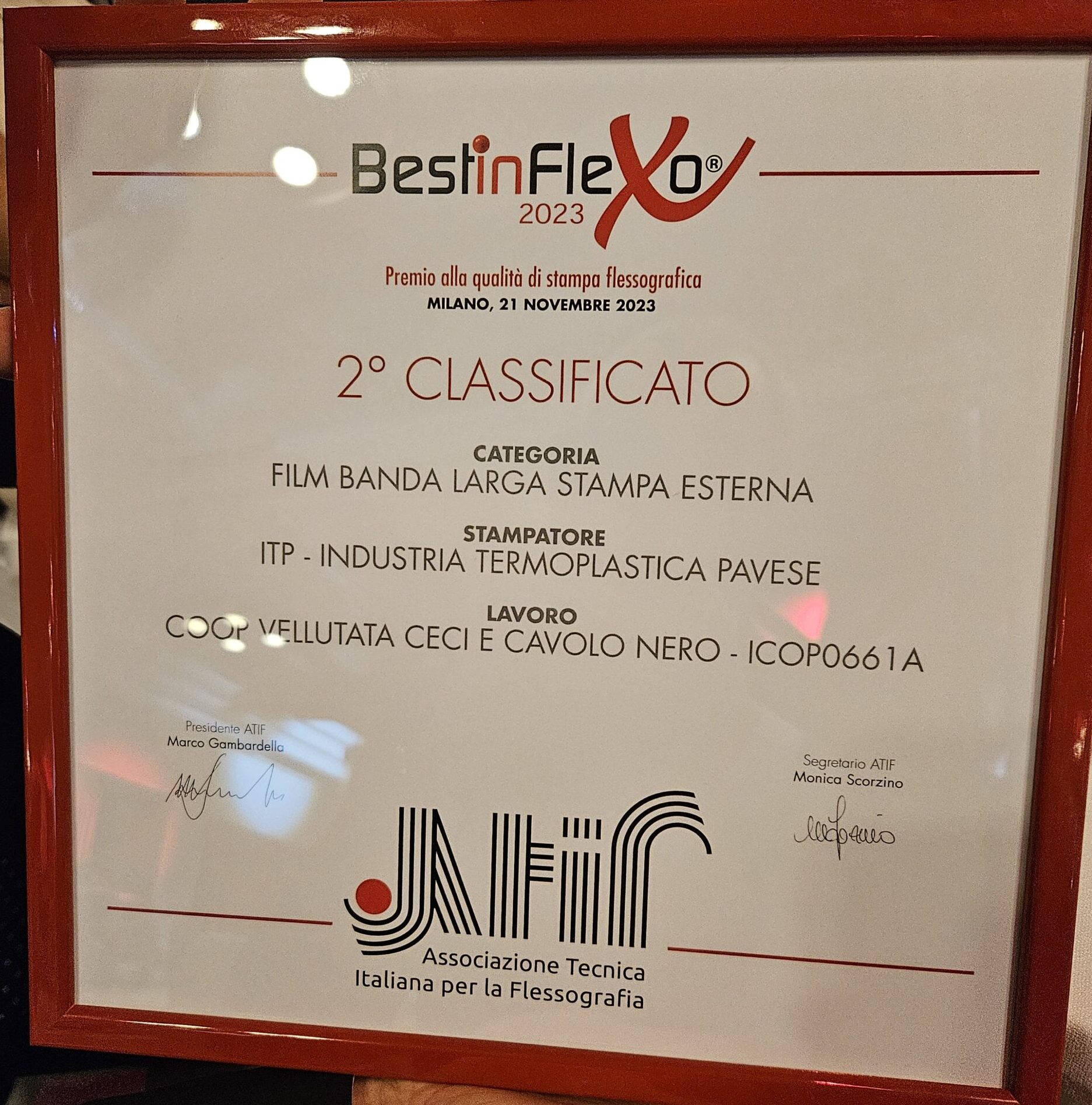In ITP, the meeting on PPWR with MEP Salini

The new ITP plant, built to house an innovative technology for the production of extremely thin and recyclable packaging, was the setting for an evening dedicated to the in-depth analysis of the PPWR – Packaging and Packaging Waste Regulation – under discussion in Brussels.
The draft European Regulation on packaging and packaging waste does not take into account the Italian performance in relation to the recycling rate of plastic packaging: we are 7 years ahead of the objectives that the EU has set itself. For this reason, several politicians are carrying forward the requests of the packaging sector, in order to mitigate the limits and rigidities that this Regulation would entail if approved in its current form.
Paola Centonze – ITP Chief Communication & Sustainability Officer
The meeting involved opinion leaders from the large-scale distribution, food, packaging production and recyclers sectors, bringing together the entire supply chain around the issues raised by the PPWR. The CEO of ITP, Massimo Centonze, introduced the evening by presenting the company and recalling its commitment since it started its business – 50 years ago – in the development of sustainable products with a view to recycling and reducing the packaging placed on the market, and he underlined the fundamental role that plastic packaging plays in ensuring food safety and reducing food waste. Concepts reaffirmed and deepened by the subsequent interventions of Andrea Corniani, AD Weightpack Srl and Stefano Lazzari, Executive Chairman of the Fabbri Vignola Spa Group.
The heart of the event was the speech by Eurodeputy Massimo Salini, who highlighted how this is one of the most representative challenges of his mandate.
The PPWR Challenge
Europe is one of the continents best able to generate excellence. One of the tools through which the quality of our productions is made able to reach all possible consumers in the world, from the richest to the least well-off, one of the most democratizing factors of the quality of our ingenuity, is packaging. Because it allows an infinitely more numerous and varied audience than in any other era to enjoy high quality products.
The “drama” of this new packaging regulation – as the MEP explains – is that the EU, after having defined a series of very stringent regulations for the sector over the last 15 years, which has projected European countries towards the challenge of maximizing the recycling of materials, is changing course by focusing on reuse.
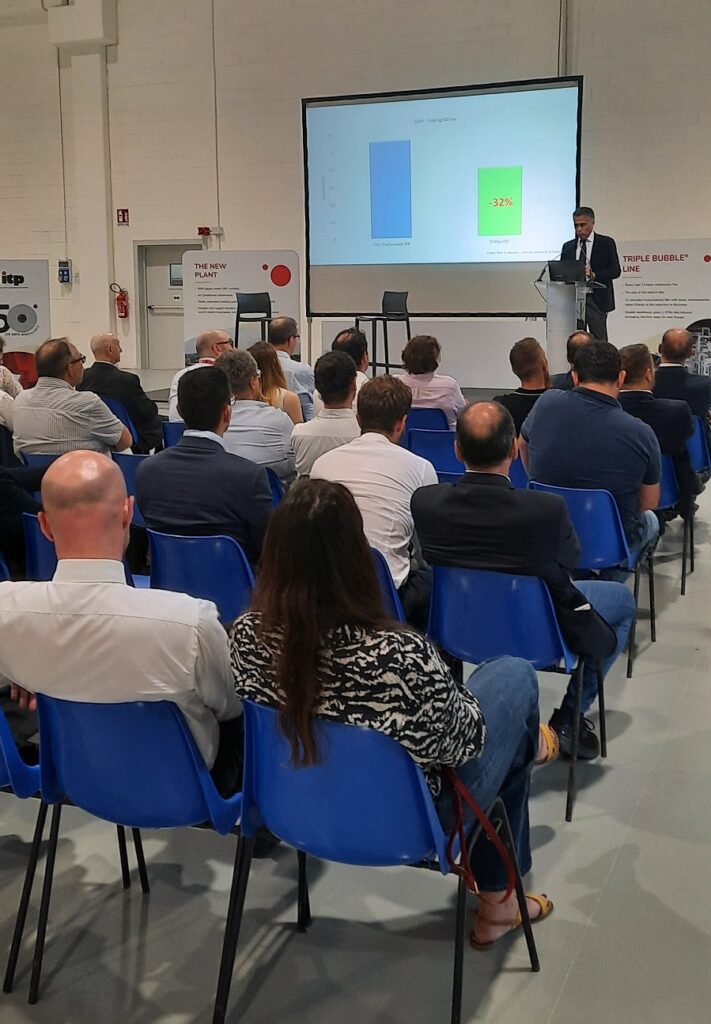
Packaging recycling or reuse
Italy is the country that best accepted this challenge, which is the smartest for citizens, because it does not require them to negatively change their lifestyle by giving up the quality of the products they can access. On the other hand, producers were asked to commit to designing and using increasingly easily recyclable packaging, in order to reduce the amount of waste. A commitment that ITP has carried forward since its origins, adopting the most advanced methodologies to reduce its impact on the environment, planning the recycling of plastic film right from its production and using as little as possible.
Instead, this regulation simply returns to the concept of reducing the packaging placed on the market through the tool of reuse, ignoring the great results achieved so far thanks to recycling. With this regulation, the ambition to do better is reduced, because the few countries that have shown that they are virtuous and have won the recycling challenge are asked to curb their progress.
In fact, considering the combination of the most stringent articles among those proposed, article 3 with the relative definitions, articles 6 and 7, pillars of the new legislation, art. 22 with the limitation to a series of products and art. 26, among the most controversial, because it attempts to introduce the concept of reuse in the Horeca sector to replace recycling, these two founding concepts enter into competition. Not surprisingly, the main amendment that the negotiators have placed on the discipline provides that where a member country guarantees certain performances in terms of recycling, that country will not be applied the targets on reuse that that article provides, since the goals are equally pursued with high performances on recycling.
It is necessary that the various countries and their companies are left free to define the technologies with which to achieve the set objectives, because otherwise the ability to innovate is reduced. In this sense, it is essential to consider in any case the LCA studies relating to the different types of packaging. For example, thanks to chemical recycling, a technology still under development, it will be possible to obtain much higher performances compared to mechanical recycling, allowing for recycled packaging also for product categories considered more sensitive such as food and medicines.
Another controversial point is the art. 3 of the PPWR, in which recycling is defined at a high level only if it allows closed loop recycling: a recycled product that returns to being the same as before consumption. This can only be applied to some materials, but politicians should only care that a material in general does not become waste.
Technological neutrality to achieve the EU Goals
There are still many questionable points in the draft regulation. Preferring, for example, reuse also in the packaging for the transport of large household appliances, this would lead to management problems and increases in logistics costs, with negative effects on the diffusion of goods.
The logical conclusion reached by Massimo Salini is that impact assessments must be the foundation of the legislation, from which derive the objectives that the Member States set for themselves and that they must pursue by making their own the democratic principle of technological neutrality.
The political action in defense of the great production capacity of European manufacturing is strongly supported by packaging companies, which have a concrete vision of the implications that the PPWR will have on the sector and are supporting, with numerous amendment proposals, the negotiation aimed at safeguarding the packaging sector, without betraying the environmental objective.
